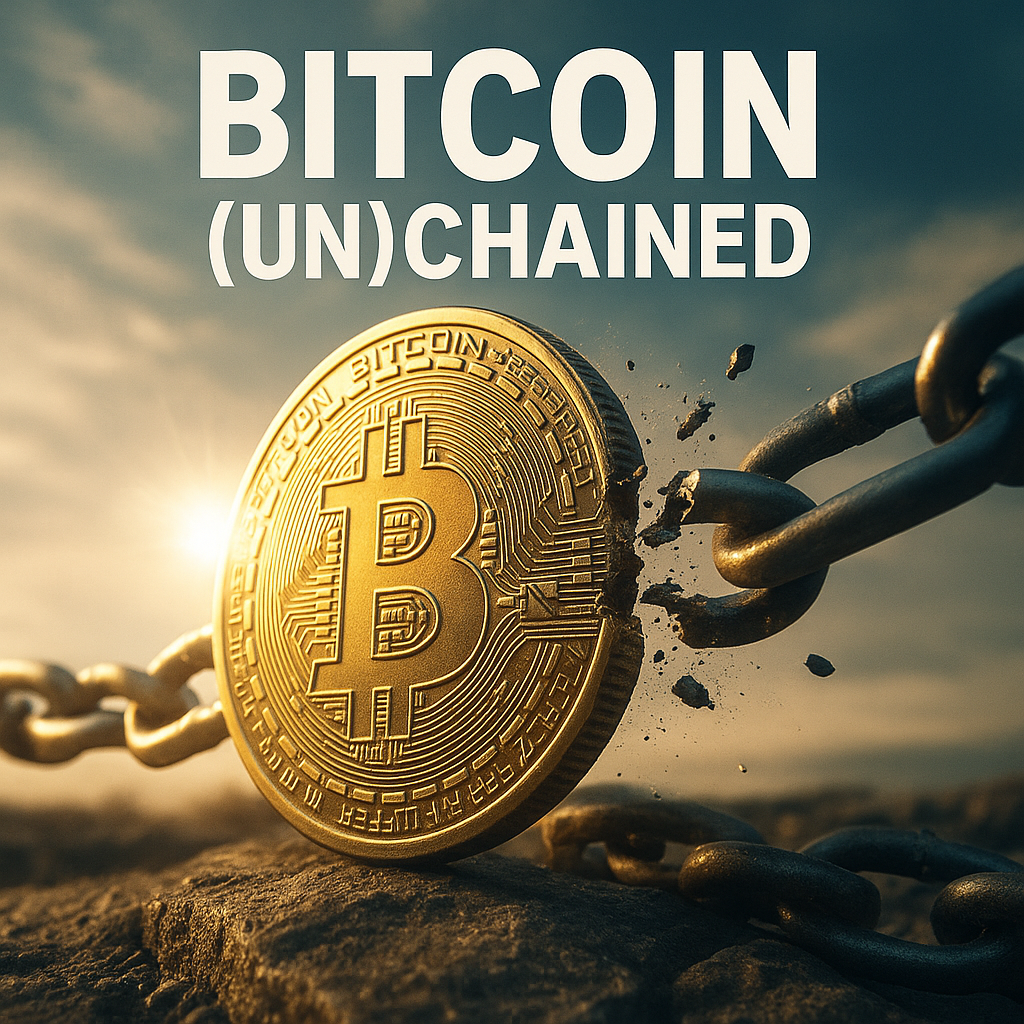
Let’s not start with fairy tales.
Bitcoin didn’t fall from heaven. It emerged from a black box, wrapped in mystique and whitepapers, in the ashes of a broken financial system. But while the code may be elegant, the culture around it has grown… cultish.
First off, let’s talk about the origin myth. A pseudonym, no verifiable identity, no verifiable intentions. Maybe it was a genius cypherpunk. Maybe it was an NSA experiment. Maybe it was five guys and a GitHub repo in a Tokyo basement. We don’t know — and pretending we do is disingenuous.
Then there’s the community. Bitcoin Maximalism has gone from a principled stance to full-blown zealotry. There’s a kind of religious undertone — where dissent is heresy and price action is prophecy.
We now see former critics like Michael Saylor and Larry Fink being praised like saints. These were guys who once scoffed at Bitcoin — and now they’re evangelized only because they might pump your bags. Bitcoin was supposed to free us from fiat, not become its measuring stick.
Let’s be honest: the moral high ground of “fix the money, fix the world” rings hollow when half the movement is cheering on Fed-induced asset inflation. If you’re counting your fiat gains while preaching anti-fiat ethics, that’s not conviction — that’s opportunism. And hey, maybe that’s fine — but let’s stop pretending it’s something else.
Bitcoin isn’t anonymous. It’s pseudonymous at best. And with every KYC exchange, centralized custodian, and compliance layer, it’s getting more transparent — not less. Try moving large amounts from a major exchange. Good luck explaining that “sovereignty” to your compliance officer.
We also have to talk about concentration of power. Bitcoin isn’t decentralized when the largest mining operations are in the U.S., the largest ETFs are managed by BlackRock, and the loudest voices are ex-banking executives. The illusion of decentralization masks a creeping consolidation.
And then there’s Coinbase.
At the time of writing, 9 of the 12 SEC-approved spot Bitcoin ETFs use Coinbase Custody as their sole custodian. This includes giants like BlackRock’s iShares Bitcoin Trust (IBIT), ARK 21Shares Bitcoin ETF (ARKB), and Invesco Galaxy Bitcoin ETF (BTCO). A few funds, like Fidelity’s Wise Origin Bitcoin Fund (FBTC), use their own custody; VanEck (HODL) uses Gemini; Valkyrie (BRRR) splits custody between Coinbase and BitGo.
That’s a massive concentration of power over real BTC reserves, all under U.S. jurisdiction.
ETF investors don’t actually own Bitcoin — they own shares in a fund that holds it. No private keys. No cold storage access. No way to withdraw. In the event of a regulatory pivot or political decree — yes, just like FDR’s 1933 Gold Confiscation Act — the U.S. government could target Coinbase-held Bitcoin with far fewer complications than self-custodied coins.
The irony? Bitcoin, created to be censorship-resistant, is now being repackaged through the same legacy system it meant to disrupt — with control points more centralized than ever.
And yes, this is a risk. A real one.
Despite the contradictions, the power grabs, and the philosophical drift — Bitcoin remains practically essential. Not because it’s pure. But because it’s the least broken option.
If you want to grow your wealth or simply opt out of monetary debasement, Bitcoin remains the clearest path. But only if you self-custody. Anything less is just leasing volatility from Wall Street.
Governments can regulate, intimidate, threaten. But a hardware wallet with private keys still beats the hell out of a confiscatable bank account. It’s not invincible. But it’s resilient enough — for now.
Game theory might just save it.
But not just from the bottom up.
We usually think of game theory in terms of individuals — early adopters, HODLers, exiters. But the real pressure may come from the top down: states racing each other in a new digital arms race.
When one country accumulates Bitcoin as a reserve asset, others can’t afford to ignore it. If one builds mining infrastructure, the rest scramble to keep up or regulate it out of fear. This is no longer ideology — it’s economic game theory on a global stage.
One nation hedging against dollar debasement forces others to do the same. Bitcoin becomes not just an asset, but a strategic defense tool. A digital gold rush with geopolitical consequences.
Ironically, the same governments that tried to ignore or suppress it may now be forced to embrace it — not because they believe, but because they fear being left behind.
Final Thought
Bitcoin isn’t perfect.
It’s political, compromised, and increasingly co-opted.
But that doesn’t mean you should ignore it.
Own a piece. Keep it offline. Hold it for the right reasons — not for hype, but for hedge, exit, and leverage.
That’s not hope.
That’s calculated asymmetry.
Bitcoin quo vadis?
We’ll see.
But either way — don’t show up empty-handed.